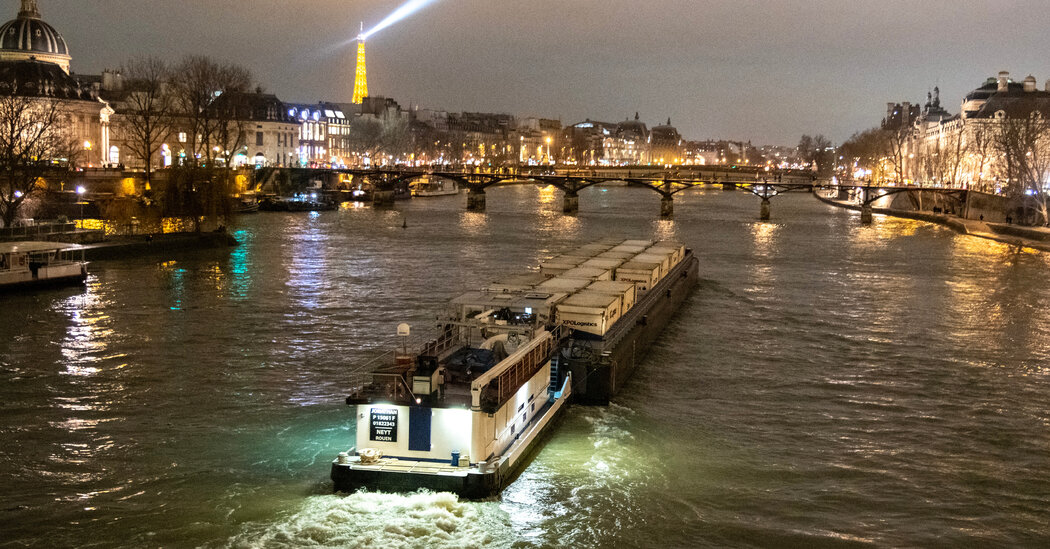As pale morning light flickered across the Seine, Capt. Freddy Badar steered his hulking river barge, Le Bosphore, past picturesque Normandy villages and snow-fringed woodlands, setting a course for Paris.
Onboard were containers packed with furniture, electronics and clothing loaded the night before from a cargo ship that had docked in Le Havre, the seaport in northern France. Had the cargo continued by road, 120 trucks would have clogged the highways. Using Le Bosphore and its crew of four prevented tons of carbon emissions from entering the atmosphere.
“The river is part of a wider solution for cleaner transport and the environment,” Captain Badar said, his eyes scanning other vessels carrying wares up and down the Seine. “But there’s much more that we could be doing.”
As the European Union steps up its battle against climate change, it needs to decarbonize freight transport, responsible for a quarter of global greenhouse gas emissions.
To get there, it is turning back to a centuries-old solution: its rivers. With 23,000 miles of waterways spanning the European Union, officials see a huge potential to help take trucks — the biggest source of freight emissions — off roads. The European Green Deal, the European Union’s decarbonization blueprint, would turn rivers into highways and double barge traffic by 2050.



Depends, there’s plenty of non-electrified track, and it’s not always economically viable to electrify.
Both are large enough to use flow batteries and the likes, though. Ships are even better at carrying tonnage but already trains can get by with non-lithium tech.